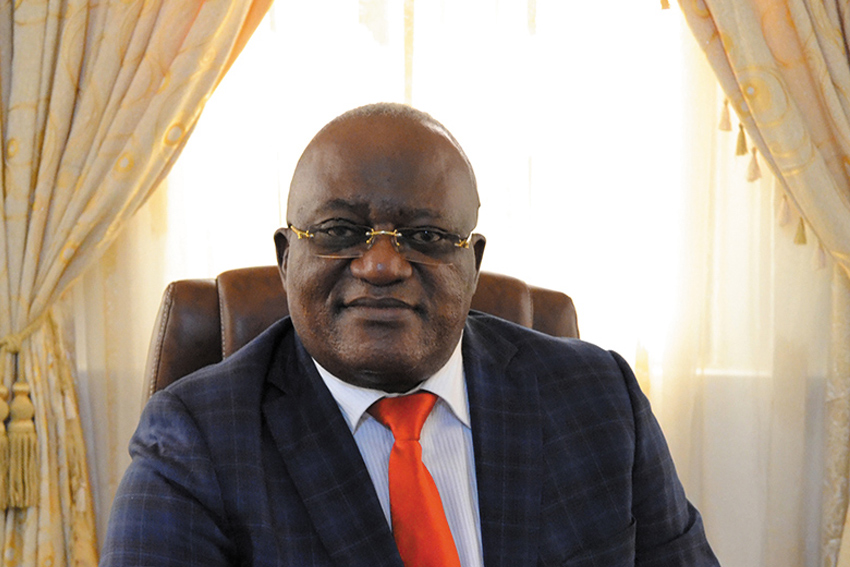Congo’s new sports infrastructure is going to provide an impressive setting for the 2015 All Africa Games, 50 years after its capital city hosted the first ever staging of the event

This year, the Republic of the Congo will host the 11th All Africa Games, thereby marking the 50th anniversary of the first Games, which were first held in Brazzaville in 1965.
In preparation, the government has invested more than €500 million ($550 million) in sports infrastructure, including a 60,055-seat Olympic stadium in Kintélé, a 10,140-seat sports palace, a 2,028-seat water palace, and numerous multidisciplinary gymnasiums around Brazzaville.
In parallel, the Alphonse Massamba-Débat Stadium – which hosted the original Games – is also being refurbished to become the focal point of the commemorative celebrations.
Beyond the excitement of hosting the competition, which is scheduled to take place September 4-19, 2015, Dr. Léon Alfred Opimbat, Minister of Sports and Physical Education, insists that staging the event has also had positive impact on the Congolese economy. From the capital to the hinterlands, numerous young people have found work on the various construction projects under way in readiness for the contest.
“Sport is making an enormous contribution to our economic and social development,” says the minister, stressing its role in the generation of employment and sports-related businesses that are evolving from the energy generated by the contest.
Yet in addition to economic benefits, Dr. Opimbat underscores the importance of ensuring that the event becomes a unifying force for the entire continent of Africa.
“We want these Games to be a sign of fraternity and solidarity to all African youth – a way for them to participate in this important benchmark for building a brighter tomorrow,” he says.
So far, this dedication to sport is paying off, both nationally and internationally.
At this year’s Africa Cup of Nations, which kicked off in January, the Congolese national football team – more commonly known as the Red Devils – scored a spectacular triumph, while Serge Ibaka, despite now playing for the NBA, returns regularly to Brazzaville.
The minister is also quick to add that many Congolese athletes who live and train abroad and hold dual citizenship with France or other European nations will be returning home and wearing their national colors for the Games.
Dr. Opimbat reports that to date preparations for the competition are on schedule.
52 nations have been invited and will compete across 22 disciplines, including track and field, boxing, badminton, tennis, basketball, swimming, table tennis, cycling, and weightlifting.
In order to ensure that regulations are respected, most of the countries in the African Union have already sent a representative to Congo in order to objectively update the Games’ manual and the general regulations.
Meetings have also taken place with the Association of African Sports Confederations (AASC) and the Association of National Olympic Committees of Africa (ANOCA), while the Organizing Committee for the All Africa Games (COJA) serves as the official co-organizer of the Games.
“For us, this event is ultimately about assuring the steady evolution of the African sports movement,” says Dr. Opimbat.
“It is a chance for all African countries, esteemed athletes, and members of the international sporting community to come to Brazzaville, to see all of the good work that has been done here, and to acclaim the champions of this great African event.”
0 COMMENTS